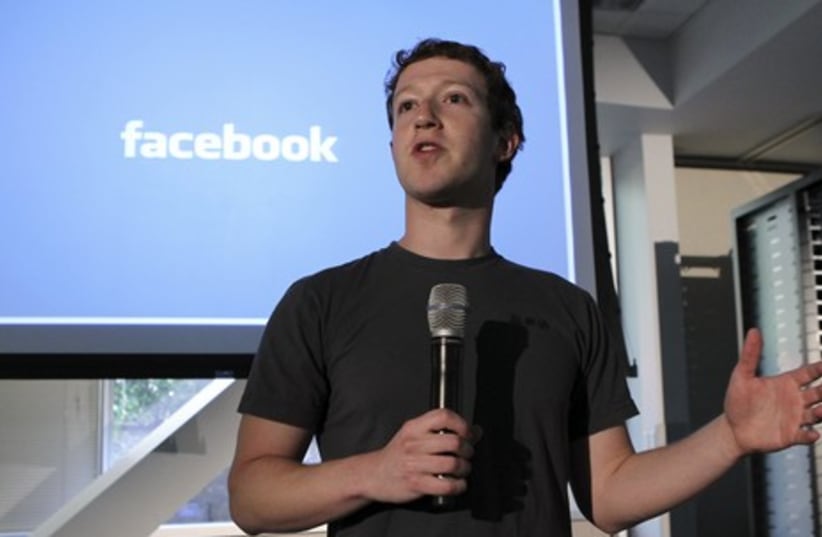Facebook fatigue?Facebook's explosive growth has come as first-time users joined the social networking site in droves, which in turn enticed even more to join up. The world's biggest social network now has 845 million members in more than 70 languages.But with signs that membership growth is slowing, analysts say Facebook needs to get existing users to spend more time on the site and advertisers to spend more money. In the last three months of 2011, Facebook's total monthly active users rose 5.6 percent versus 10.5 percent in the last three months of 2010."The hypergrowth is probably over'" said Michael Pachter, head of research in the private shares group at Wedbush Securities. "The low-hanging fruit of the Western developed world has already been penetrated to a large extent...It's just kind of obvious that they're not going to ever get every single person that lives on the planet."Facebook knows it needs to diversify revenue streams. It has a successful gaming business that nets it 30 percent of the revenue from sales of virtual goods in games like Zynga Inc's Farmville.But Facebook wants to encourage users to stay for media content, putting it in competition against Apple Inc and Google Inc.Known for its engineering-driven culture, where innovation and experimentation are prized, Facebook has rolled out a steady stream of new features and capabilities, from video chat to mobile apps. They appear to be ensuring that users keep coming back.In December, 57 percent of Facebook's 845 million active users interacted with the service on any given day, up from 54 percent at the same time last year, the IPO prospectus shows.And U.S. users seem willing to devote increasing amounts of time to the site - seven hours each month compared to just over five hours only a year ago, data from industry research firm comScore says.Boosting that level of engagement, however, will be one of Facebook's challenges. With new competitors hitting the market, from image-sharing site Pinterest to Google+, some analysts warn that social networking "fatigue" might set in."There's probably going to be a breaking point in how many of these new technologies consumers can cobble into their lives," said Rebecca Lieb, an advertising and media analyst at research and consulting firm Altimeter Group."You still have to eat, you still have to sleep. So the market might become very saturated and shake out," she said, noting that Facebook has a very solid foundation compared to some of the other social networking services.
Analysis: Facebook IPO tests easy growth assumptions
Focus to shift from user growth to revenue growth; $100 billion valuation sets high expectations; diversification moves bump into Apple, Google.

Facebook fatigue?Facebook's explosive growth has come as first-time users joined the social networking site in droves, which in turn enticed even more to join up. The world's biggest social network now has 845 million members in more than 70 languages.But with signs that membership growth is slowing, analysts say Facebook needs to get existing users to spend more time on the site and advertisers to spend more money. In the last three months of 2011, Facebook's total monthly active users rose 5.6 percent versus 10.5 percent in the last three months of 2010."The hypergrowth is probably over'" said Michael Pachter, head of research in the private shares group at Wedbush Securities. "The low-hanging fruit of the Western developed world has already been penetrated to a large extent...It's just kind of obvious that they're not going to ever get every single person that lives on the planet."Facebook knows it needs to diversify revenue streams. It has a successful gaming business that nets it 30 percent of the revenue from sales of virtual goods in games like Zynga Inc's Farmville.But Facebook wants to encourage users to stay for media content, putting it in competition against Apple Inc and Google Inc.Known for its engineering-driven culture, where innovation and experimentation are prized, Facebook has rolled out a steady stream of new features and capabilities, from video chat to mobile apps. They appear to be ensuring that users keep coming back.In December, 57 percent of Facebook's 845 million active users interacted with the service on any given day, up from 54 percent at the same time last year, the IPO prospectus shows.And U.S. users seem willing to devote increasing amounts of time to the site - seven hours each month compared to just over five hours only a year ago, data from industry research firm comScore says.Boosting that level of engagement, however, will be one of Facebook's challenges. With new competitors hitting the market, from image-sharing site Pinterest to Google+, some analysts warn that social networking "fatigue" might set in."There's probably going to be a breaking point in how many of these new technologies consumers can cobble into their lives," said Rebecca Lieb, an advertising and media analyst at research and consulting firm Altimeter Group."You still have to eat, you still have to sleep. So the market might become very saturated and shake out," she said, noting that Facebook has a very solid foundation compared to some of the other social networking services.